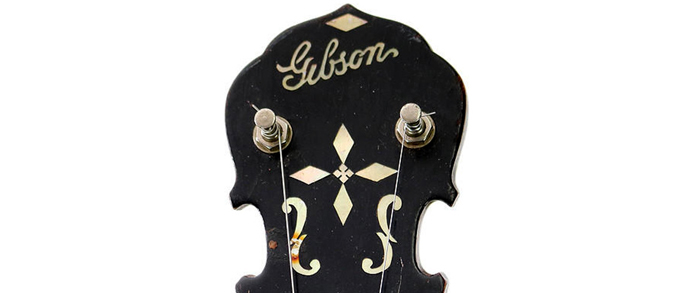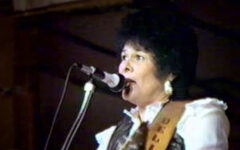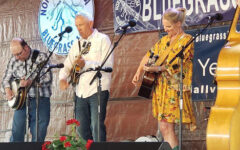
Long before Les Paul started thinking about solid body electric guitars, the Gibson company – then located in Kalamazoo, MI – was known as one of the premier makers of banjos in the US. They provided tenors for the explosion of popularity in that style of banjo in the early 1900s, and their Mastertone models from the 1930s through the early ’40s serve as the standard of excellence by which all modern banjos are measured.
But since the flooding of the Cumberland River in Nashville ravaged their production facilities in May of 2010, Gibson has not assembled or shipped a single banjo. Nor have they been willing to discuss the status of banjo building in their future plans.
Halting production in the wake of the flooding is easily understood. The Nashville shop, located just by the banks of the Cumberland near the Grand Ole Opry House, was completely destroyed by the flood. Both the showroom and the assembly areas had several feet of water sloshing around. Parts and tools were floating on the surface, with ruined machinery below. It was deemed irrecoverable, and the site was abandoned with banjo and mandolin luthiers sent to work in other Nashville production facilities.
Numerous calls and emails to Gibson for comment since have been met with stony silence. Existing dealers have only been told (for the past 3 years) that no banjo production is expected each year. One call to the main Gibson customer service line verified this fact, and that no banjos have been shipped since the flood.
It seems a fair question to ask: what is going on with Gibson Banjos?
 The demise of their 5 strings was not only a shock to the dealers who represented them, but very nearly caused the collapse of First Quality Music in Louisville, who had been manufacturing the Gibson banjo components for some time. The Sullivan family had tooled up substantially to support this production, and it accounted for nearly half their annual revenue when it disappeared in a flash after the flood. First Quality has since restructured, and have survived the financial jolt by refocusing their efforts on their own Sullivan Banjo line, and the Derby City turkey calls they make from scrap neck wood.
The demise of their 5 strings was not only a shock to the dealers who represented them, but very nearly caused the collapse of First Quality Music in Louisville, who had been manufacturing the Gibson banjo components for some time. The Sullivan family had tooled up substantially to support this production, and it accounted for nearly half their annual revenue when it disappeared in a flash after the flood. First Quality has since restructured, and have survived the financial jolt by refocusing their efforts on their own Sullivan Banjo line, and the Derby City turkey calls they make from scrap neck wood.
Gibson mandolins, which had been made in the same shop at Opry Mills destroyed by flood waters, have recently resumed production, but no word whatsoever has been offered where banjos are concerned. The Gibson web site still shows several banjo models listed, but only their Asian import series by Epiphone is available for sale.
Is it possible that the company whose banjos are so intimately enmeshed with bluegrass music is abandoning their production forever? It seems that the banjo lovers, dealers and collectors who have supported Gibson these many years deserve an answer to that question at the very least.







